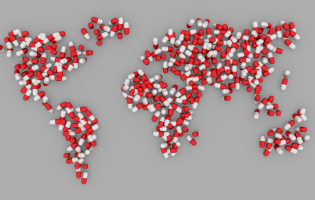The Age of Central Bank Experimentation
This publication, part of AGI’s 30th anniversary Symposium, focuses on the increasingly public role central banks play in the twenty-first century. It asks important questions, including: Do central banks have …
Boring Hard Boards: Negotiating the Transatlantic Trade and Investment Partnership
Part of AGI’s 30th anniversary Symposium, this publication analyzes the transatlantic trade relationship, in particular the prospects for a new Transatlantic Trade and Investment Partnership (TTIP). The authors discuss the …
Bernanke’s Slide
The global financial markets’ slide on Thursday was a stark reminder of the fact that investors remain addicted to cheap money from central banks. It only took U.S. Federal Reserve …
Recent Authors
AGI provides knowledge, insights, and networks as tools to solve the challenges ahead.
Support Our WorkThe Trust Trifecta
Engraved on the U.S. dollar bill are the words “in God we trust.” The sarcastic extension of that phrase says “all others pay cash.” It seems that forces rampant in …
Schaeuble’s Interim Banking Union
In a recent article for the Financial Times, Germany’s Finance Minister Wolfgang Schaeuble finally explained to an international audience why he thinks treaty changes are necessary in order to provide …
Resetting Transatlantic Trade Negotiations
By DAAD/AGI Fellow Tilman Krueger Underlying past failures to agree on transatlantic trade liberalization are strong vested interests in the U.S. and in the EU—issues that have not vanished over …
Selling the German Model
In my recent piece from the Financial Times (paid content), I argue that the German economic model being sold so aggressively throughout the euro zone may not be the most effective …
Merkel’s Placet
Remember the saying it takes two to tango? In the case of the European Central Bank, that phrase could prove rather fitting for its President Mario Draghi, who will need …




